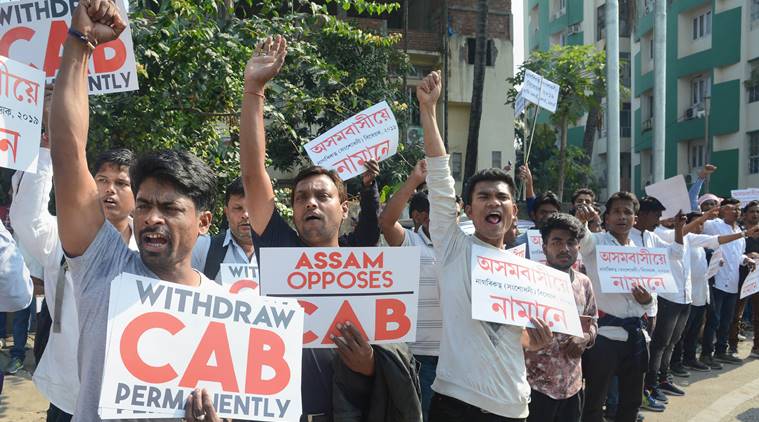- India
- International
Inner Line Permit areas of Arunachal, Nagaland, Mizoram exempted from Citizenship Bill
The Citizenship Bill seeks to amend The Citizenship Act, 1955 to make Hindu, Sikh, Buddhist, Jain, Parsi, and Christian illegal migrants from Afghanistan, Bangladesh, and Pakistan, eligible for citizenship of India.
 Activists of Krishak Mukti Sangram Samiti raise slogans during a protest against the Citizenship Amendment Bill. (File)
Activists of Krishak Mukti Sangram Samiti raise slogans during a protest against the Citizenship Amendment Bill. (File)
Taking into consideration the concerns of Northeastern states, the inner line permit areas of Arunachal, Nagaland and Mizoram and regions under the Sixth Schedule in the North East have been exempted from the Citizenship Amendment Bill, which was cleared by the Union Cabinet on Wednesday.
This means that beneficiaries under CAB will become Indian citizens but will not be able to settle in Arunachal, Nagaland and Mizoram. As a matter of fact, the same restriction applies to existing Indian citizens.
At the same time, a large part of Assam, Meghalaya and Tripura will be out of the purview of the contentious bill due to them being under Sixth Schedule areas.
“Nothing in this section shall apply to Assam, Meghalaya and Tripura as included in the Sixth Schedule to the Constitution, and to the areas covered under the inner line notified under the Bengal Eastern Frontier Regulation, 1873,” the Bill mentions.
The Citizenship Bill seeks to amend The Citizenship Act, 1955 to make Hindu, Sikh, Buddhist, Jain, Parsi, and Christian illegal migrants from Afghanistan, Bangladesh, and Pakistan, eligible for citizenship of India.

The existing Act allows an immigrant to apply for citizenship if s/he has lived in India for 12 months immediately before the application, and for 11 of the last 14 years. The amendment relaxes the second requirement from 11 years to 6 years as a specific condition for applicants belonging to these six religions, and the aforementioned three countries.
The Bill, which had lapsed in the previous term of the Modi government due to massive protests in Rajya Sabha, is expected to be taken up in Parliament next week.
What is Inner Line Permit system?
Simply put, an Inner Line Permit is a document that allows an Indian citizen to visit or stay in a state that is protected under the ILP system. The system is in force today in three Northeastern states — Arunachal Pradesh, Nagaland and Mizoram — and no Indian citizen can visit any of these states unless he or she belongs to that state, nor can he or she overstay beyond the period specified in the ILP. The concept comes from the colonial area. Under the Bengal Eastern Frontier Regulation Act, 1873, the British framed regulations restricting the entry and regulating the stay of outsiders in designated areas.
On Saturday, when political and civil society representatives from the Northeastern states met Union Home Minister Amit Shah to express their concerns about the Bill, he had assured them that the Bill would provide protection to such regions and states where the Inner Line Permit (ILP) is applicable, and autonomous administration has been granted under the Sixth Schedule of the Constitution.
Arunachal Pradesh and Nagaland are not among those drastically affected by migration from Bangladesh. Mizoram shares a border with Bangladesh. The three states that have seen the highest migration, however, are Assam, Tripura and Meghalaya, none of which has an ILP system.
Apr 25: Latest News
- 01
- 02
- 03
- 04
- 05






























